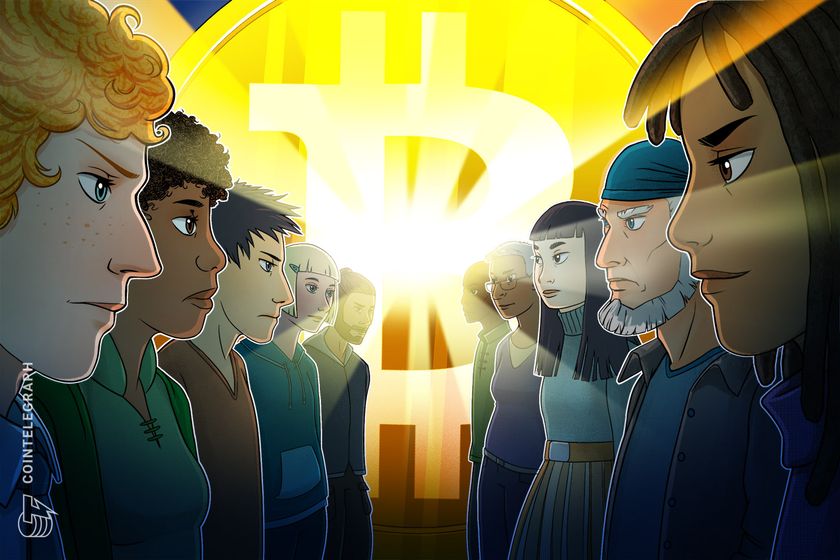

Crypto and equities traders were hopeful for a last-minute solution that would prevent the US from enacting 104% tariffs on Chinese goods entering the United States, but in a press conference, the White House confirmed that the tariffs would start on April 9. Markets deteriorated when Peter Navarro, trade adviser to US President Donald Trump, stated that tariffs were “not a negotiation.”
As a result, the S&P 500 index closed on April 8 with a 1.6% loss, reversing earlier gains of 4%. This downturn has left traders wondering whether Bitcoin () can regain its bullish momentum amid worsening macroeconomic conditions.
Between April 2 and April 7, the S&P 500 index dropped by 14.7%, causing panic among Bitcoin holders and forcing a retest of the $75,000 level—the lowest in more than five months.
S&P 500 futures (left) vs. Bitcoin/USD (right). Source: TradingView / Cointelegraph
During an appearance with Israeli Prime Minister Benjamin Netanyahu on April 7, President Trump reportedly said his goal was to "reset the table" on trade. He added that “there can be permanent tariffs, and there could also be negotiations because there are things that we need beyond tariffs.” Amid this , IPOs and mergers have been delayed, while leveraged loan deals and bond sales were sidelined, according to Yahoo Finance.
It becomes clear that the stock market is likely to rally if trade war risks subside. Economists have cautioned that tariffs could trigger and significantly raise the chances of an economic recession, according to Reuters. However, assessing the impact on Bitcoin’s price remains a challenging task. This is because some investors see the cryptocurrency’s fixed monetary system as a safeguard against the of global fiat currency supplies.
In the short term, the positive correlation between Bitcoin and the stock market is expected to persist. Nonetheless, the US government’s fiscal challenges present a potential opportunity for Bitcoin’s price to grow. On April 8, the US 10-year Treasury yield rose to 4.28%, following a brief dip to 3.90% on April 7. This increase suggests that investors are demanding higher returns to hold these assets.
US Dollar Index (DXY, left) vs. US 10-year Treasury yield (right). Source: TradingView / Cointelegraph
The rising cost of rolling over the $9 trillion in set to mature within the next 12 months is expected to increase fiscal imbalance and weaken the US dollar. The US Dollar Index (DXY) has diverged from US Treasury yields, falling to 103.0 on April 8 from 104.2 on March 31. This situation could potentially support Bitcoin’s price—a CEO Larry Fink in his March 31 letter to investors.
Related:
Michael Gapen, Morgan Stanley’s chief US economist, in a client note on April 8: “We think the right answer is for the Fed to wait in its current stance for longer,” as reported by CNBC. According to Morgan Stanley’s updated forecast, the US Federal Reserve is expected to maintain interest rates at 4.25%-4.50% until March 2026, adding that “only a recession would change the calculus” and “a recession could mean earlier and larger up-front cuts.”
Bitcoin’s momentum is likely to turn positive as traders realize that the US Federal Reserve has limited tools to avoid a recession without risking inflation. While predicting the exact timing of a breakout remains uncertain, prolonged delays in resolving trade war issues could drive investors toward scarce assets like Bitcoin, especially amid fears of potential US dollar devaluation.
This article is for general information purposes and is not intended to be and should not be taken as legal or investment advice. The views, thoughts, and opinions expressed here are the author’s alone and do not necessarily reflect or represent the views and opinions of Cointelegraph.